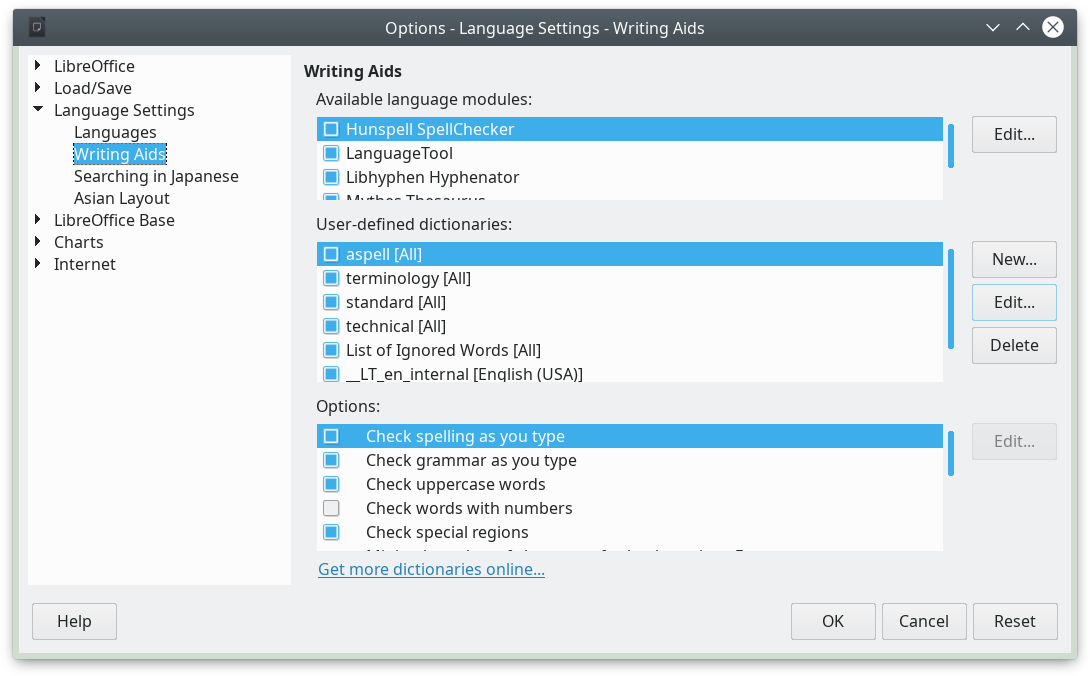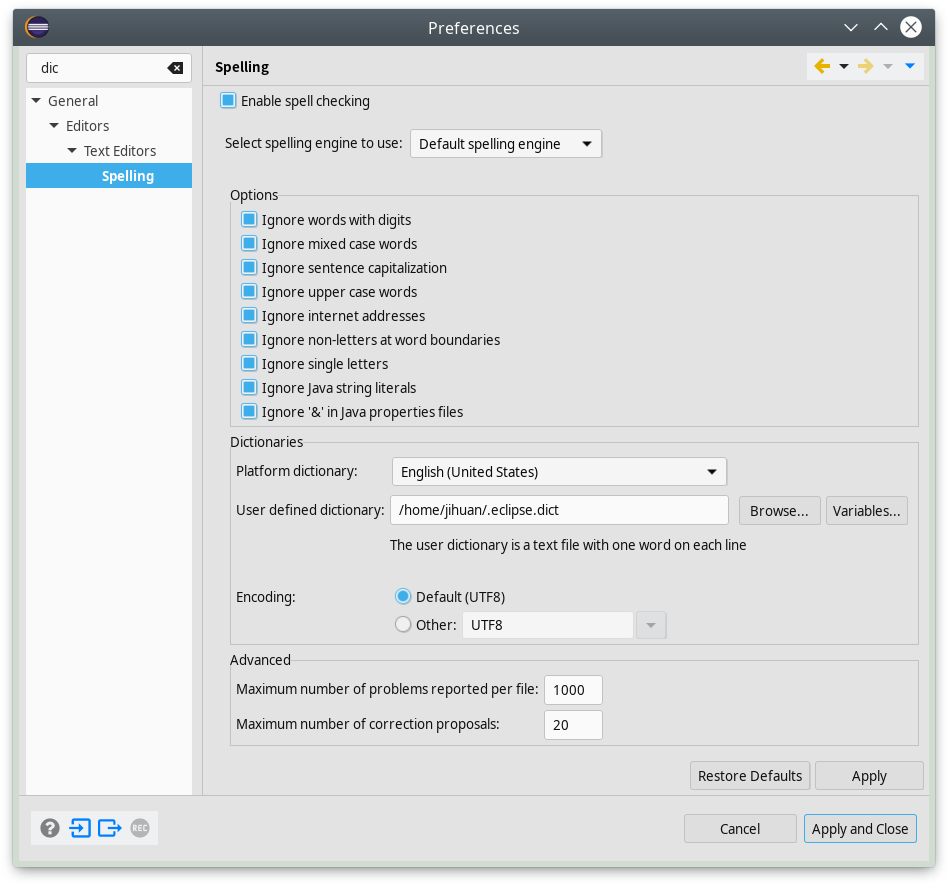Synchronize user dictionaries across different software applications
Table of contents
- Synchronize to Joplin
- Synchronize to LibreOffice
- Synchronize to Eclipse
- Synchronize to Freeplane
- Synchronize to Firefox and Thunderbird
- Synchronize to KDE applications
- Summary
My toolchain for programming and document writing includes Emacs, Eclipse, LibreOffice, Joplin and Freeplane. For web page browsing and email, I use Firefox and Thunderbird. All of them provide a spell check function. As time goes on, I’ve added more and more rare words and terminology to them independently. To make the spell checking behavior consistent and remove the redundancy of adding a same word to all the applications, it is necessary to synchronize their user dictionaries. Since most of the time I work within Emacs, whose spell checker is aspell, I intend to copy all the words accumulated in ~/.aspell.en.pws to the other applications.
Synchronize to Joplin
The following script generates the Joplin customized dictionary by converting from the aspell dictionary.
word_list=`gawk '{if (NR > 1) print;}' ~/.aspell.en.pws`
dict_checksum=`echo -e "$word_list" | md5sum | cut -d "-" -f 1 | tr -d [:space:]`
echo -e -n "${word_list}\nchecksum_v1 = $dict_checksum" > ~/.config/Joplin/Custom\ Dictionary.txt
The procedure is described as this.
- Use
Gawkto remove the header linepersonal_ws-1.1 en numin~/.aspell.en.pws. The remaining contents in the file are the list of words, one item per line. - Calculate the MD5 checksum of the word list. Note that the variable
$word_listshould be wrapped within double quotes. Otherwise, it will be separated into a list of values by whitespace according to the interior field separatorIFS. Another thing to be mentioned is that there should be no newline character at the end of the word list. Otherwise, the checksum will be considered incorrect by Joplin. - Write out the list of words along with the checksum value to Joplin’s custom dictionary file. N.B. The option
-nofechoshould be used, which preventsechofrom adding a trailing newline character at the end of file, which is not accepted by Joplin.
Synchronize to LibreOffice
The following script generates the dictionary used by LibreOffice.
echo -e "OOoUserDict1\nlang: <none>\ntype: positive\n---" > ~/.config/libreoffice/4/user/wordbook/aspell.dic
gawk '{if (NR > 1) print;}' ~/.aspell.en.pws >> ~/.config/libreoffice/4/user/wordbook/aspell.dic
The script first generates the header in the dictionary file.
OOoUserDict1
lang: <none>
type: positive
---
Then it simply appends the word list from aspell. After that, in the configuration Language Settings → Writing Aids, aspell will appear in User-defined dictionaries, enable it.

Synchronize to Eclipse
In the configuration General → Editors → Text Editors → Spelling, we can select the file for user defined dictionary.

In my case, I use ~/.eclipse.dict. Then simply copy all aspell word list to into it.
gawk '{if (NR > 1) print;}' ~/.aspell.en.pws > ~/.eclipse.dict
Synchronize to Freeplane
The method is the same as Eclipse with the dictionary file being ~/.config/freeplane/1.9.x/UserDictionary_en.txt.
Synchronize to Firefox and Thunderbird
The method is the same as Eclipse with the dictionary file being persdict.dat in the default profile folder of Firefox or Thunderbird. Its absolute path can be obtained by visiting about:profiles in Firefox or Thunderbird.
Synchronize to KDE applications
KDE applications like Kate, Okular, etc. rely on the plugin Sonnet for spell checking, which uses aspell as its backend. Therefore, spell checking in KDE applications is consistent with that in Emacs and there is nothing more to do.
Summary
The above user dictionary synchronizations coalesce into a definitive solution for a consistent and uniform spell checking in KDE Plasma on Linux.